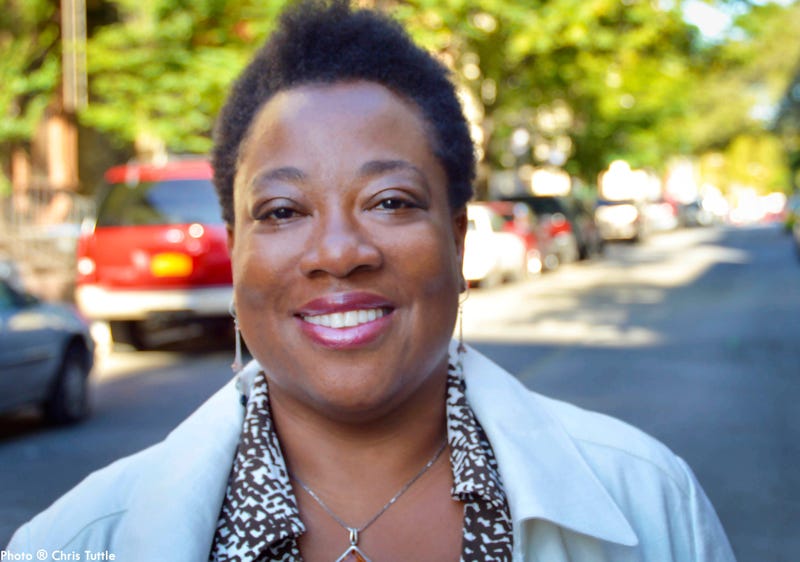
In the decades since Stonewall, the LGBTQ community has come out of the shadows, grown in numbers and strength, changed laws, established rights and gained allies, yet today, we are still fighting for our basic rights, dignity, and safety.
LGBTQ people continue to experience serious and severe violence in the United States and many reports show that anti-LGBTQ violence is on the rise. The National Coalition of Anti-Violence Programs (NCAVP), which collects data about violence impacting the LGBTQ community, recorded 52 hate violence related homicides of LGBTQ people in 2017, the highest number ever recorded in the 21 years of collecting this data, and an 86% increase in single incident reports compared to 2016.
Consistent with previous years, people of color and transgender or gender nonconforming (TGNC) people were most often victims of hate violence homicides (71% of victims were people of color, 52% were TGNC, 40% were transgender women of color.) This data marks a five year steady rise in recorded homicides of transgender women of color. Thirty-eight percent of victims were cisgender men and in 2017, hate violence homicides of cisgender men increased 400% from 2016 (4 reported homicides in 2016 to 20 reported homicides in 2017).
The homicides and thousands of attacks on individuals in the LGBTQ community are not random or born in isolation. They are directly related to a backlash against the increased public acceptance of LGBTQ people in this country and the subsequent legal rights and protections established over the past decades since Stonewall.
NCAVP hate violence data also revealed that as the voices of hate fueling hate violence have been growing, the intensity of the severity of reported hate violence attacks on LGBTQ people increased in 2017 indicated by rates of violence involving weapons, injuries sustained, and medical attention sought by survivors. In fact, 46% of LGBTQ hate violence survivors sustained an injury in 2017 compared to 31% in 2016, 42% reported seeking medical attention in 2017 compared to 23% in 2016, and 27% reported that weapons were used in 2017 compared to 13% in 2016.
It has been fifty years since Stonewall, but the work to end violence against our communities continues.
In 2017, more than 100 anti-LGBTQ+ bills had been introduced in numerous states across the country. This state-based violence further legitimizes the ongoing drum of hate speech, rhetoric, and the individuals and groups that adopt it.
LGBTQ survivors still face the real risk that interactions with the police will be violent or even deadly. In three out of 52 of the hate violence homicides recorded in 2017, the victims were killed by police responding to incidents. Additionally, a majority of hate violence and intimate partner survivors reported that law enforcement was either indifferent or hostile towards them.
LGBTQ people are also facing violence within our relationships. Anti-LGBTQ violence interacts with, and exacerbates, intimate partner violence, yet those connections and interrelationship are rarely discussed. For example, a person who loses their job because of anti-trans bias may be more financially reliant on an unhealthy relationship or an abusive partner may use the violence that an LGBTQ person experiences from their family as a way of isolating that person even further.
All of this is taking a toll on the LGBTQ community’s overall health and well-being. New research is beginning to show higher levels of symptoms of trauma, including anxiety, isolation, and fear across LGBTQ communities, regardless of whether an individual has personally experienced a traumatic experience of hate violence.
It has been fifty years since Stonewall, but the work to end violence against our communities continues. LGBTQ people have an opportunity to reimagine anti-violence and safety that is not rooted in and reliant on the criminal legal system. We can learn from our history in that we cannot end violence by using the same tools and strategies of criminalization and violence that we are trying to dismantle.
LGBTQ communities can develop safety strategies that bring communities together instead of dividing them. We must explicitly name homophobia, transphobia and other forms of oppression when we hear them used in political speech, policies, practices and even our everyday lives.
Together we can send a clear message that hate will not be tolerated in our subways, schools, churches, halls of government and streets.
We must call in our family members and community members to engage in conversations about the violence that is happening and how it is impacting all of us. We can support and train allies who want to stand up against hate and violence.
Out of this current hostile environment, we are collectively building something new. The LGBTQ community and our allies today are just as resolved as our Stonewall ancestors and more united and stronger than ever. And we won’t give up until we are all safe and free.
